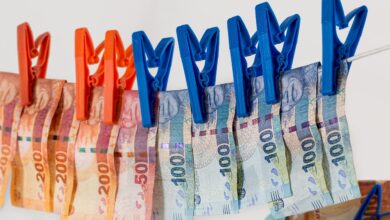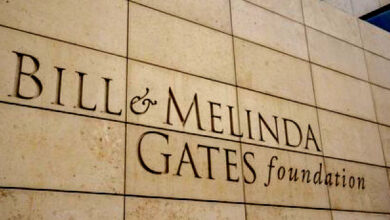After the BOE steps in, Asian stocks go up, but the pound rally loses steam.

The financial markets are taking a lot of damage.
Hong Kong (AFP) – Asian stocks went up on Thursday because the yields on UK and US government bonds went down after the Bank of England bought bonds to stop a new financial crisis.
But the pound, which hit a record low against the dollar earlier this week, had a hard time keeping its gains against the greenback, and analysts said it could lose more ground.
Central banks around the world are raising interest rates to stop inflation from getting out of control. This is hurting the financial markets and making people worry about a recession and a possible drop in company profits.
Related: Asian Stocks Continue to Lose as Fears of a Recession and Rate Risks Continue to linger
This week, people started selling more after the UK’s new finance minister, Kwasi Kwarteng, released a mini-budget on Friday that cut taxes. Many experts, including the International Monetary Fund, warned that this would make people borrow more money and hurt an economy that was already in bad shape.
The spending plan caused the yields on UK government bonds and those of other countries to soar, and it made it more likely that interest rates would go up even more.
So, on Wednesday, the Bank of England said it would spend $71 billion over two weeks to buy long-term UK bonds “to bring order back to the market.”
The move meant that the BoE had to stop selling “gilts” as part of its plan to fight inflation, but analysts thought it might give traders hope that similar support could be given elsewhere.
Ray Attrill of the National Australia Bank said that traders were used to the fact that central banks were not ready to help asset markets when they fell because of measures to fight inflation.
But now everyone knew that “central banks’ financial stability obligations can still kick in when markets become dysfunctional, and this could have real-world economic effects.”
All three major indexes on Wall Street went up by about 2% on Wednesday, and so did markets in Europe.
Asia added to the gains, even though the first rise was starting to slow down as the day went on.
Hong Kong, Sydney, Seoul, Singapore, Wellington, and Manila all went up by more than 1%, and Tokyo, Shanghai, Taipei, and Jakarta also went up.
But the pound was getting weaker again and was just below $1.0800. Earlier, it had risen to $1.0900, but the dollar remained the most popular currency because the Fed plans to raise rates even more this year.
Edward Moya of OANDA said that sterling could be in for more rough seas.
Related: Asian stocks make up for recent losses, but the Fed’s jitters keep gains from going higher.
“The British pound went on a little roller coaster ride after the BOE decided to buy unlimited long-dated gilts,” he said in a note. “However, the pound is likely to stay low because of the country’s fiscal situation, current account deficit, financial stability risks, and the chance that some people will be in energy poverty.”
The rise across markets, on the other hand, was rare, and the mood on trading floors remains dark as the Fed and other central banks focus on raising interest rates to fight inflation that has been high for decades.
Josh Emanuel at Wilshire said, “Everyone is watching inflation and interest rates.” “Bond markets will really be the ones that tell stock markets what to do. “So, when bond yields go down, it’s a good sign for stocks.”
And Citigroup’s Julia Raiskin added that “The markets are very gloomy… “Aside from the dollar, not many assets are trading in a positive way.”





